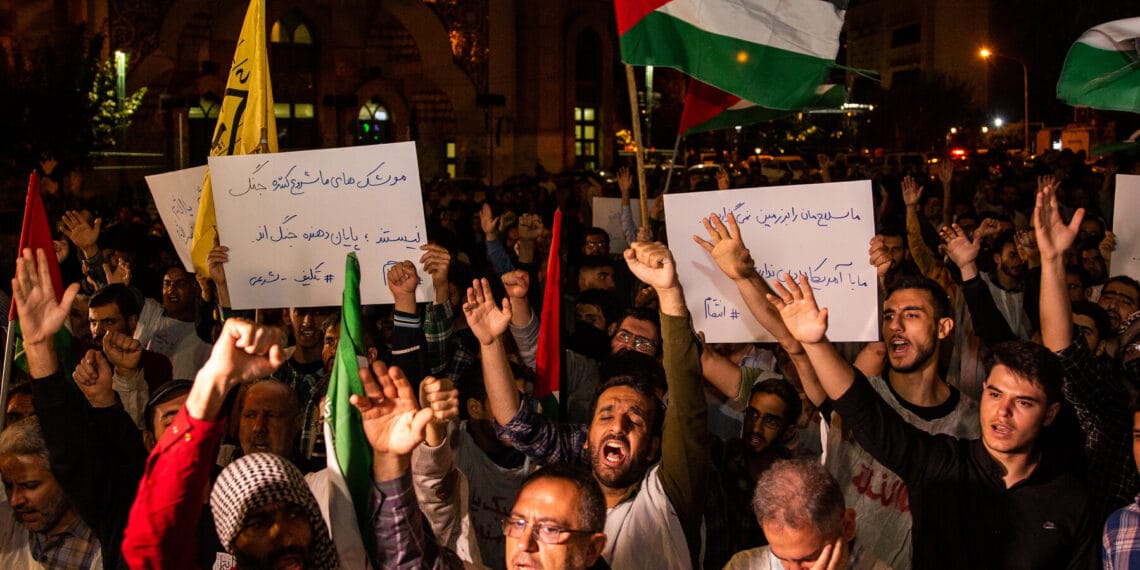The Gist:
The recent Israeli airstrike that reportedly killed Hassan Nasrallah, the leader of the Lebanese militia Hezbollah, has caused significant concern. Iran’s response to this incident is crucial for several reasons. Nasrallah’s death represents a major shift in power dynamics within the region, especially considering Hezbollah’s influence in Lebanon and its ties to Iran.
If Iran reacts forcefully, it could escalate tensions not only within Lebanon but also with other countries in the region. This situation might lead to a surge in military actions or proxy conflicts involving Iran, its allies, and Israel. Conversely, if Iran opts for restraint, it could signal a willingness to de-escalate and maintain stability in the area, which many hope for as it may lead to peace talks and reduced hostilities.
The Good:
- Potential for Peace: If Iran chooses a peaceful response, it may encourage dialogue and cooperation in a tense area, promoting stability.
- Reduced Violence: A restrained reaction might limit military conflicts, leading to fewer casualties and suffering for civilians caught in the crossfire.
- Strengthening Alliances: Positive actions could reinforce Iran’s diplomatic ties and alliances with other nations, promoting unity against common threats.
- International Support: A calm and measured response from Iran might gain international approval and support, favouring a unified approach to regional issues.
- Focus on Reconstruction: With a reduced chance of conflict, nations could concentrate more on rebuilding and addressing socio-economic challenges in the region.
The Bad:
- Escalation of Conflict: A strong response from Iran could lead to increased military actions, threatening the lives of many innocent people in the region.
- Proxy Wars: If tensions rise, it could result in proxy wars involving various groups and nations, prolonging suffering and instability.
- Endangered Civilians: Civilians are often the first victims in conflicts; any military escalation will put thousands at risk.
- Regional Instability: Increased tensions could destabilise neighbouring countries, leading to widespread unrest and unpredictability across the region.
- International Relations Strain: A conflict may negatively impact Iran’s relations with other nations, resulting in sanctions or diplomatic isolation.
The Take:
The possible death of Hassan Nasrallah, leader of Hezbollah, at the hands of an Israeli airstrike, is a major event that could redefine the balance in the Middle East. Hezbollah has been a significant force in Lebanon and a powerful ally for Iran over the years. Nasrallah’s strategic leadership has shaped Shia militant operations, and his demise could create a power vacuum within the militia. The immediate question is how Iran, a close supporter of Hezbollah, will respond to this incident.
If Iran chooses a vigilant stance and decides to retaliate, we could witness a fierce escalation of conflict that would have dire consequences. For instance, Iran has a history of responding to threats in a militaristic way. This could involve launching more attacks on Israeli forces or fuelling military actions through proxy groups in Iraq or Syria. Given the fragile situation within Lebanon, such actions could lead to significant unrest and danger for civilians trapped in the conflict.
On the other hand, should Iran take a more restrained approach, the situation could open the door to dialogue and understanding. It’s possible that Iran could see the value in stabilising the region, especially if this can prevent escalation into a full-blown conflict. A restrained reaction could be seen as a strategic move for Iran, aiming to project strength while also mitigating the risks of further violence. This approach could lead to discussions about regional security and eventually pave the way for negotiations involving various countries in the area.
Hezbollah’s role is critical, with its significant military capabilities making it a key player in any conflict involving Israel. The responses from both Iran and Hezbollah will be watched closely by countries like the United States, Russia, and European nations. This scenario heightens the importance of international diplomacy and mediation efforts that could help settle tensions peacefully.
Furthermore, regional powers such as Saudi Arabia and Turkey are likely to be affected by how Iran reacts. Their responses might further complicate the already tense atmosphere in the Middle East. If they perceive a weakness in Iran after the attack, it could encourage them to boost their military engagements or alliances against it, leading to a more complex and dangerous scenario for everyone involved.
In conclusion, how Iran responds to the potential death of Hassan Nasrallah is more than just a matter of military might; it touches upon delicate regional relations and the wellbeing of millions of people. The world will be paying close attention to whether peace can prevail or if we will see another escalation in an already volatile environment. The choices made in the coming days will have lasting repercussions for the Middle East and beyond.
Click here to read the full article




